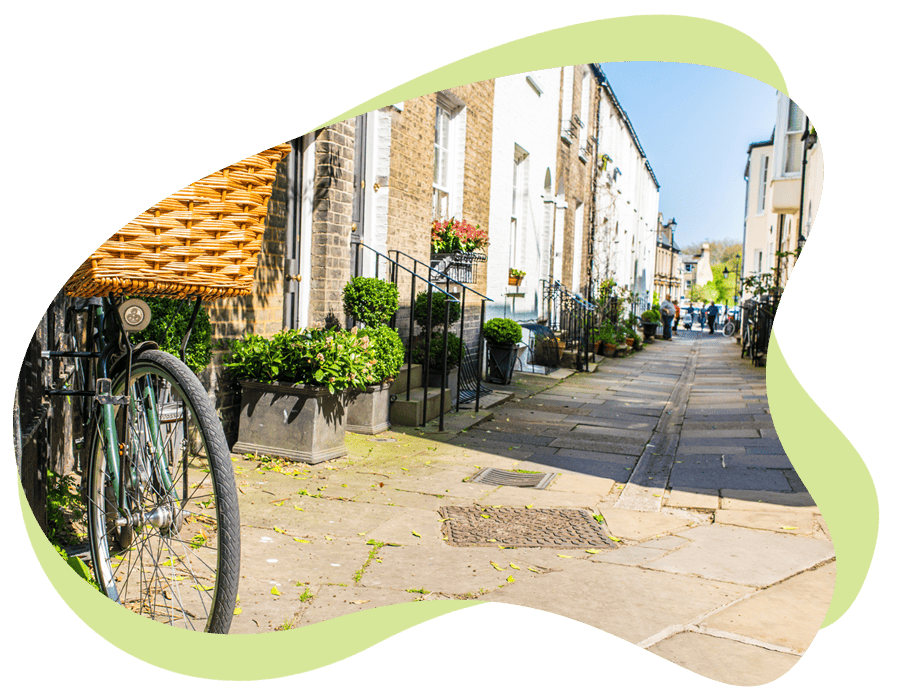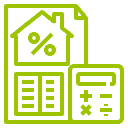Self-Build Mortgages
- Specialist Mortgage Advisers
- Thousands of Mortgage Products Available
- See if we can help you find the right deal.
Get in touch for a free, no-obligation chat with an adviser about how we might be able to help.
What is a self build mortgage?
A self build mortgage is designed to assist a self builder in the process of building a property from scratch, instead of buying a ready-made property. Instead of releasing the ascertained funds in one large, lump sum as with a traditional mortgage, a self build mortgage has payments that are released throughout the building process, usually these payments are made at key stages of the build.
It’s important to note that a number of self build mortgage lenders will also offer ‘on the plot’ options too, however not all self build mortgage providers are able to offer this service.
In regards to rates of interest, often the rates of interest for a self build mortgage are generally slightly higher than the rates for ready built properties, and it’s also important to be aware that that admin fees will differ from lender to lender. However, what it’s also important to note is that once the property is built and ready to use, that often the rates of interest on self build mortgages are lowered by the mortgage provider. That being said, that is not always the case and does differ from mortgage provider to mortgage provider, so it’s always worth double checking this.
When it comes to progressing your self build mortgage application, you will need to offer plans for your property build along with a breakdown of the overall estimated build cost. If you’re unsure of how to go about doing this, there are plenty of online self build calculators that you can use to get a better idea of how much your property should cost to complete.
When it comes to calculating the cost of your self build property, it’s important to remember to add on the cost of your plot. It’s also a good idea to consider adding some additional funds to cover the cost of any required contingency costs.
If you are considering taking out a self build mortgage, the below information should help to make navigating the process easier and less stressful, also allowing you to move through the steps of applying in a more informed way.
What type of self build mortgage would be best for me?
In regards to self build mortgages, there are two different types of mortgages available to choose from – the arrears type and the advance type. It’s crucial that you clearly understand the difference between the two mortgage types, when selecting which option would work best for you and your specific needs.
The arrears type of mortgage is where staged payments are made as different stages of the build progress, once each stage is completed. This kind of self build mortgage is a good option for people who have a large sum of their own cash to put into the build, alongside their self build mortgage.
Whereas, the advance type of mortgage is where payments are released at the beginning of each stage of the build, instead of at the end of each stage as with the arrears type mortgage option. The advance type mortgage means that funds are available at the start of each stage and that means that money is available to cover the cost of labor and materials, and so on. This helps to remove the need for short-term borrowing, such as taking out bridging loans, for example.
How do interest rates on self build mortgages work?
As briefly mentioned above, the interest rates on self build mortgages tend to be higher than the rates of mortgages for standard, ready-built properties. These rates of interest tend to differ between four and six per cent per year.
It’s also important to note that arrangement rates can be high, and it’s important to budget effectively for these. However, it’s also important to bear in mind that these rates tend to differ from mortgage lender to mortgage lender. When taking out a self build mortgage, many lenders have a clause which ties borrowers to them for 12 months and 36 months, depending on the lenders’ preference.
Once a property has been deemed habitable by a qualified surveyor and the building completion certificate has been issued, there is sometimes the option of the borrower being able to switch to a lower interest rate mortgage. However, this is not guaranteed to be available.
What amount can I borrow with a self build mortgage?
In relation to the amount that can be borrowed as part of a self build mortgage, this will depend on a varying number of criteria being met and your unique personal financial situation. Along with your personal finances, your debts will be used to determine the amount that you can borrow from a lender – there’s no set amount, money is lended on a case by case basis.
In regards to your borrowing limits, an affordability calculator will be used to determine what you can afford to borrow and pay back within a specified time period. Your income and expenditure will be a key aspect of this calculation, as will any savings that you have.
What should I consider before applying for a self-build mortgage?
Where will you live during the property work?
One question that it’s important to address is where you will live while your new home is being built. This will have an impact on your ability to borrow money, as you may need to pay to rent a property while your new home is being built. For instance, monthly rental payments will have an impact on your affordability and eligibility for a mortgage, so it’s important to think carefully about this aspect of self building.
What build system will you use?
It’s important to note that certain lenders will not lend funds for some types of construction processes, so it’s vital that you double check your building system approach with your lender before you start. It’s crucial that all design and construction processes are compliant with the regulations in place in your area and also meet your lender’s criteria for regulations.
Every lender has a different set of criteria that must be met, so it’s essential to discuss the process you plan on using for your home build, before you begin the construction process. Ensure that you are clear on this as failing to comply can result in your mortgage being revoked.
It’s also important not to set up a payment schedule with your contractors until you know the way in which, and time period of which, your funds will be released by your mortgage lender.
What is your estimated build cost?
You will find that some lenders require borrowers to work to a fixed build budget, while other lenders request that a surveyor is used to calculate the estimated build cost. It’s important to check with your lender about what they require beforehand, to ensure that you are able to meet their needs.
Remember, when it comes to your build calculation, it’s vital that there is a 20% extra fund amount added to meet any contingencies in your building processes and cover unexpected costs that may crop up.
What documentation is needed for a self build mortgage?
Usually, the required documentation for a self build mortgage mirrors the documentation required for a traditional mortgage. However, you may find that your mortgage provider asks you to offer additional documents, which could include any of the following:
- Copy of your planning permission documentation
- Copy of construction plans and specific details, such as measurements
- Copy of the total project cost estimation, including contractors from contractors
- Copy of the approval form from Building Regulators
- Copy of the insurance you have in place for the site and the construction process
- Copy of structural warranty
- Credit report copy from a site like Experian
Where can I get a self build mortgage?
There are a wide number of options when it comes to selecting a self build mortgage, with each mortgage provider offering a differing service. That’s why it’s so vital that you take the time to properly understand what each lender can offer you and what they expect in return for providing you with a mortgage loan for your self build property.
For anyone who is considering building a property from scratch on a plot of land, instead of purchasing a ready-built property, a self build mortgage is an essential aspect of building a new home from the ground up.
While the process may seem somewhat confusing, it’s primarily similar to the process that’s in place for traditional mortgages, it simply comes with a number of added requirements. In addition to having changes in regards to the way in which the mortgage payments are made – unlike a traditional mortgage the payment process tends to be staggered instead of offering one lump sum payout, designed to meet the needs of a constantly changing project.
What our clients say…
Contact Us
So if you would like to discuss how we help you then give our friendly Cambridge team a ring today on 01223 266140.







